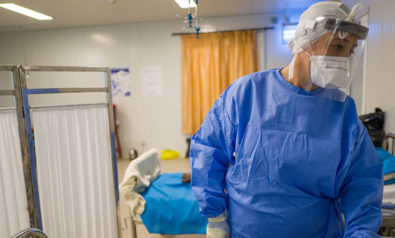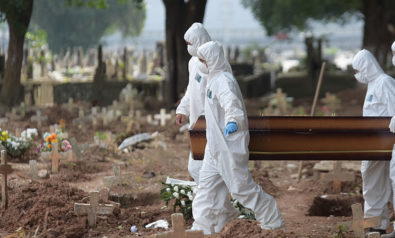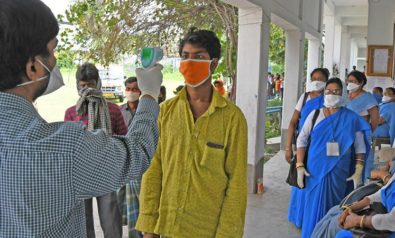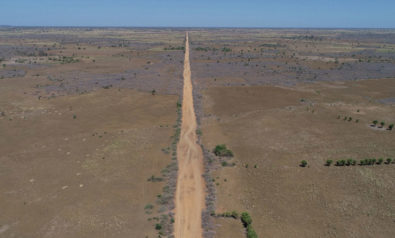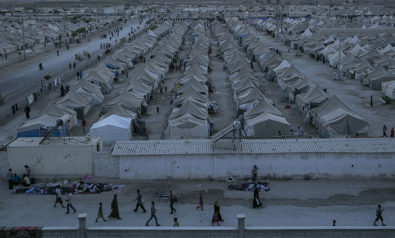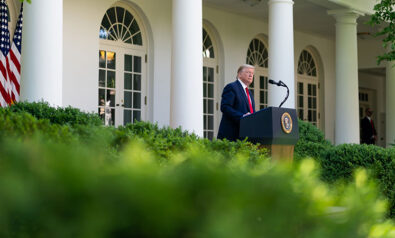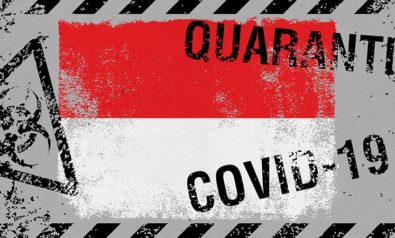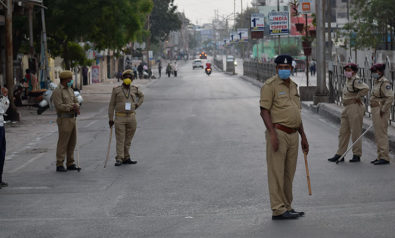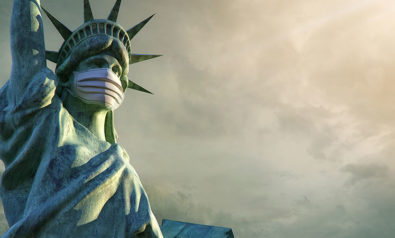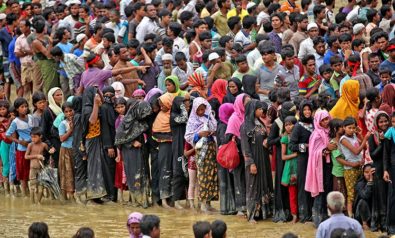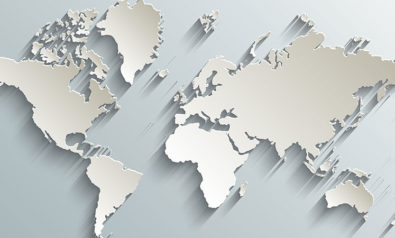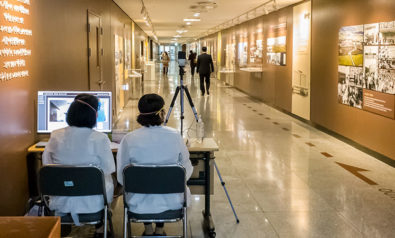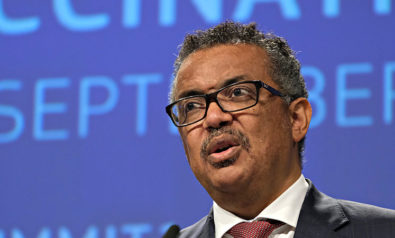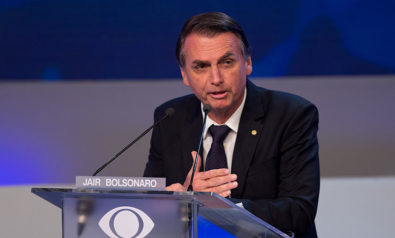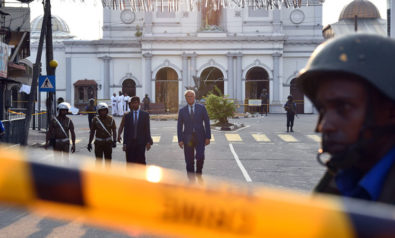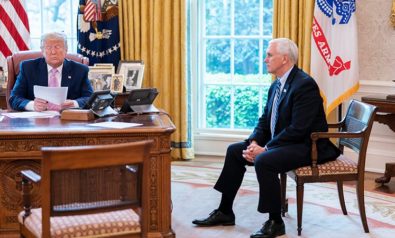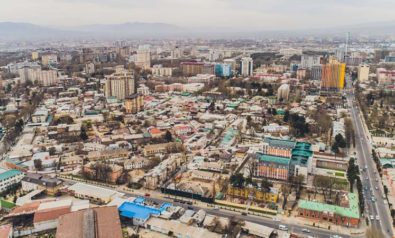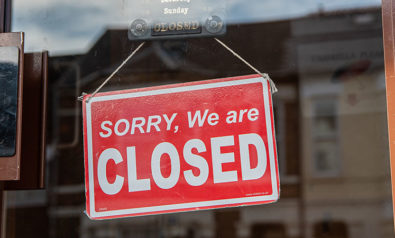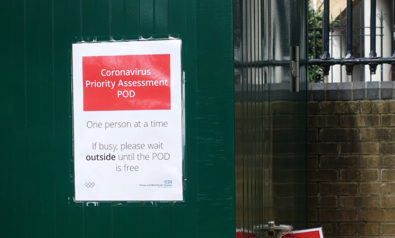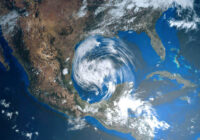With nearly every government and populace around the world now mobilized to combat the coronavirus pandemic, the sort of broad-based international coordination often seen in previous global crises remains glaringly absent, and it’s holding us back from a solution. The reasons for this lack of overarching collaboration and coordination may be several, but one stands out starkly: the United States. The world’s wealthiest and most technologically advanced nation is focused almost exclusively on itself.
This is because of one man: President Donald Trump. Mr. Trump is an avowed unilateralist, as per his “America First” pledge uttered throughout his presidential campaign and repeated frequently when speaking to his supporters. That approach is hurting America as much as the rest of the world.
Strength in Numbers
Under previous US presidents dating back the Franklin Roosevelt, America took the lead to rally the global community against threats, whether to international security, the global economy or world health. It was George W. Bush who led the worldwide community against the threat of international terrorism following 9/11 and against HIV/Aids in Africa. He and his successor, Barak Obama, gathered nations large and small to mount a global effort to stanch the hemorrhaging of the global economy during the 2008-09 financial crisis, and Obama rallied the international community again in response to the 2014-16 Ebola epidemic.
COVID-19: Will We Learn the Lessons?
In these and so many other global challenges of the last 75 years, American leaders in both the White House and Congress understood that even with all of its resources, the US could not take them on by itself. But without the leadership of the world’s richest and most powerful nation, the efforts of other countries would also fall short.
Working together, however, the world was able to overcome crises that in a previous era would have devastated nations and economies and left millions either dead or destitute. Never before in history has mankind been better positioned than today to confront a health challenge like the coronavirus and its economic effects. Yet, in surveying the landscape, no coordinated international undertaking appears evident. That is holding us back.
What’s Missing
First, where is the global task force charged with monitoring the disease and advising on best practices? To be sure, separate agencies, like the World Health Organization (WHO) or national agencies, such as US Centers for Disease Control and Prevention, have tried to take on some of those tasks. But a single, internationally empowered clearinghouse, perhaps endorsed through a UN Security Council resolution, would make responses by nations so much more effective. Such an organization would also make coordination of aid appeals more effective and actions to meet them more responsive.
Since the outbreak of the coronavirus in the US, Congress has passed and the president signed three major bills to help individual Americans, businesses and hospitals and health-care workers contend with the health and economic fallout of the pandemic. The last bill, signed on March 27 by President Trump, provides more than $2.2 trillion in relief to the country as well as modest funding for lesser developed nations. To put it into perspective, that’s 47% of the entire US federal budget for 2020.
One wishes, however, that elements of this legislation would have had the broader perspective of the global effort. For example, in its commendable effort to support research and development into the coronavirus and possible treatments, cures and a vaccine, factoring in what other nations may be able to contribute would have been useful. Furthermore, in a global pandemic, even the best of efforts on the part of the US will come to naught without other nations similarly mobilizing, within appropriate and relevant resource constraints, to address the crisis.
A second area in which a multilateral approach might prove effective is research on the virus and the development of a vaccine. Individual scientists, researchers and institutions around the world have mobilized in a massive undertaking to learn all they can about the coronavirus and ultimately identify a vaccine. Most of them doubtlessly have their own formal and informal networks for sharing data and work results in order to take advantage of the latest developments.
Nevertheless, integrating the appropriate experts within an international coordinating task force not only would facilitate their work but also the allocation of global financial and scientific resources. In addition, when a vaccine is finally discovered, which it will be, ensuring that it is quickly produced on a mass scale in order to immediately vaccinate some 60% to 80% of the world’s population — scientists are still uncertain what percentage would require vaccinating to effectively prevent the coronavirus from spreading — will be imperative. International coordination will be essential for that undertaking.
Future Virus Hotspots
A third area requiring coordinated international efforts is aiding lesser developed nations, countries in conflict — Libya, Syria, Yemen, Afghanistan, etc. — and refugees and internally displaced peoples around the world, a figure that exceeds 70 million as per the UN Refugee Agency. Wealthier nations will eventually be able to eradicate the coronavirus from their midst, but until the needs of smaller, less wealthy nations and stateless and homeless populations are protected, the entire planet remains vulnerable. If developed countries like China, Italy, Spain and the US are experiencing the horrific losses and economic strains seen to date, the number of victims in these other nations will be exponentially greater without adequate and effective international aid and support.
Working with China, Europe, Japan and other advanced nations, the US ought to be leading the global response to the coronavirus called for by King Salman of Saudi Arabia, speaking as chair of the G20 recently. Instead, China and the US have been trading insults or blaming one another, with Trump referring to the “Chinese virus,” his secretary of state calling it “Wuhan virus,” and China blaming the outbreak on a US plot to weaken China.
Leadership is most in need at this juncture if the world is to prevail over the coronavirus. Donald Trump, who rarely takes responsibility for anything unless it becomes a success, is unfit for that leadership role. But without the US leading and promoting collaboration and cooperation, can any global effort succeed or even get off the ground?
The views expressed in this article are the author’s own and do not necessarily reflect Fair Observer’s editorial policy.
Support Fair Observer
We rely on your support for our independence, diversity and quality.
For more than 10 years, Fair Observer has been free, fair and independent. No billionaire owns us, no advertisers control us. We are a reader-supported nonprofit. Unlike many other publications, we keep our content free for readers regardless of where they live or whether they can afford to pay. We have no paywalls and no ads.
In the post-truth era of fake news, echo chambers and filter bubbles, we publish a plurality of perspectives from around the world. Anyone can publish with us, but everyone goes through a rigorous editorial process. So, you get fact-checked, well-reasoned content instead of noise.
We publish 2,500+ voices from 90+ countries. We also conduct education and training programs
on subjects ranging from digital media and journalism to writing and critical thinking. This
doesn’t come cheap. Servers, editors, trainers and web developers cost
money.
Please consider supporting us on a regular basis as a recurring donor or a
sustaining member.
Will you support FO’s journalism?
We rely on your support for our independence, diversity and quality.



